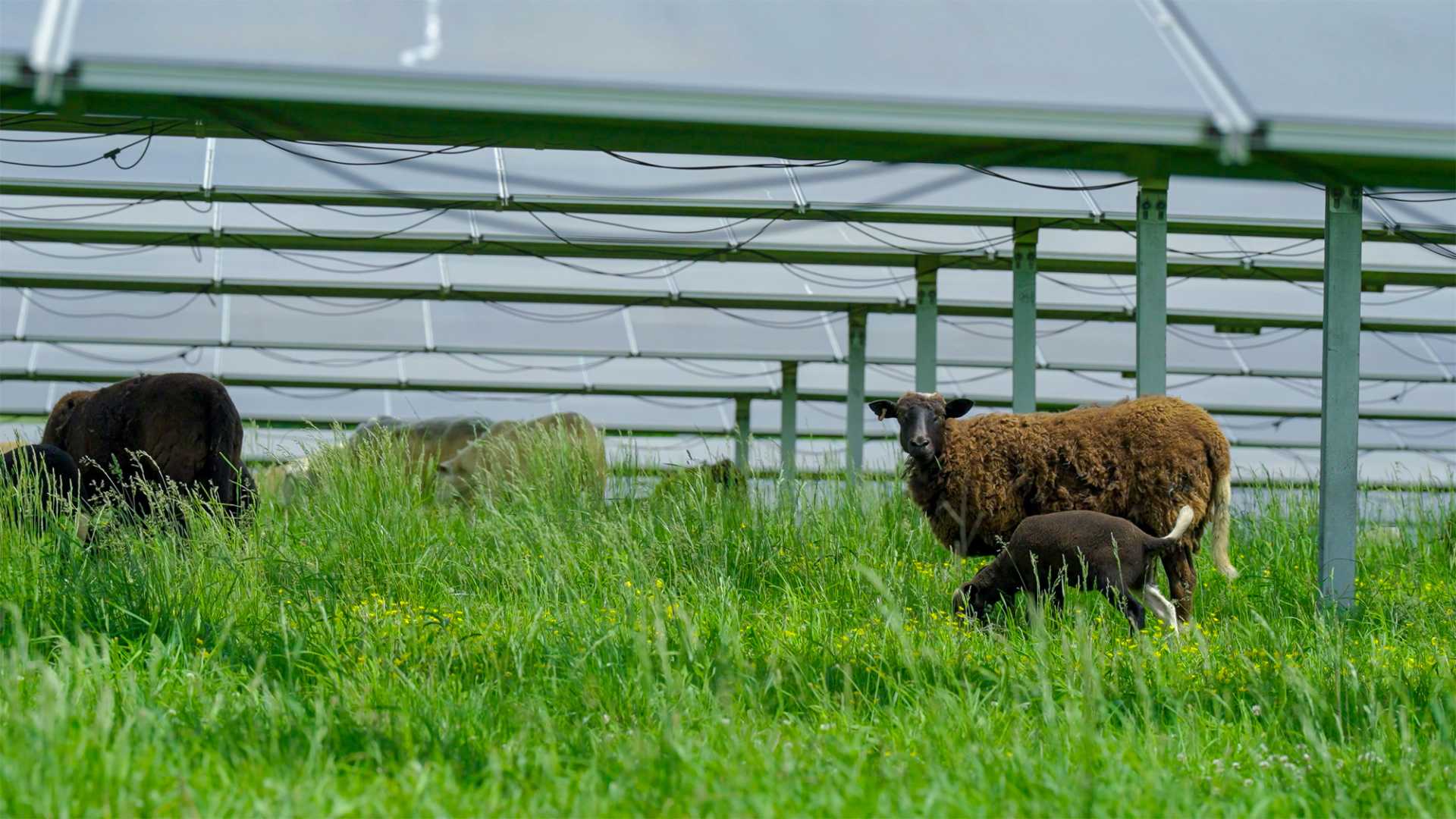Business
USDA Cuts Solar Funding Amid Farmland Loss Concerns in Kentucky and Tennessee

FRANKLIN, Kentucky — A recent decision by the USDA has raised concerns about the future of solar energy projects on farmland in Middle Tennessee and southern Kentucky. The agency announced it will stop funding new solar initiatives, citing worries about farmland loss.
Many farmers are now questioning the impact of this policy change, especially as solar farms are increasingly viewed as a viable form of energy production. Critics argue solar farms drive up the cost of farmland, making it less affordable for traditional agriculture.
Katie Carothers, who manages sheep at solar farms in Kentucky and Tennessee, represents a model that blends solar energy with traditional farming. Carothers, who moved from sheep breeding in Ohio, now grazes her 600 sheep across solar facilities.
“There’s a lot we can get done with one of these dogs and a couple of panels, and an old stock trailer,” said Carothers. Her work provides a unique opportunity to build a full-time farming business.
Partnering with Silicon Ranch, a Nashville-based solar farm operator, has allowed her sheep to be sold in retail stores, creating a significant business opportunity for her. “This was the greatest opportunity we’ve had to create a full-time farming business without having any generational land or even generational experience,” she stated.
The sheep help manage vegetation under solar panels, further helping the maintenance of these facilities. “Using the sheep allows us to thin out the thatch and make it easier to maintain the vegetation underneath these panels,” she said.
Matt Beasley, the chief commercial officer at Silicon Ranch, emphasized the importance of solar energy. He noted that it has become the fastest-growing power source in the U.S. in the past decade. While faces of concern exist, he argues solar farms can coexist with traditional agriculture.
However, Secretary of Agriculture Brooke Rollins has expressed that farmland access remains one of the largest challenges for new farmers. According to USDA reports, Tennessee has already lost over 1.2 million acres of farmland and could potentially lose 2 million more by 2027.
Beasley refuted claims that solar farms threaten agriculture, citing a study commissioned by the Tennessee General Assembly, which concluded that solar energy does not pose a risk to farming. “In fact, solar provides an opportunity to keep land in agriculture and produce energy at the same time,” Beasley said.
He added that solar installations not only generate renewable energy but also contribute to raising grass-fed livestock and enhance land health.
In a significant policy update, the USDA will no longer support solar projects on farmland using taxpayer dollars or allow components from foreign adversaries in funded initiatives. Beasley highlighted that all components of the Franklin solar farm are made in the United States.
<p“We're actually helping to bring that ag economy back here to the United States,” Beasley noted.












